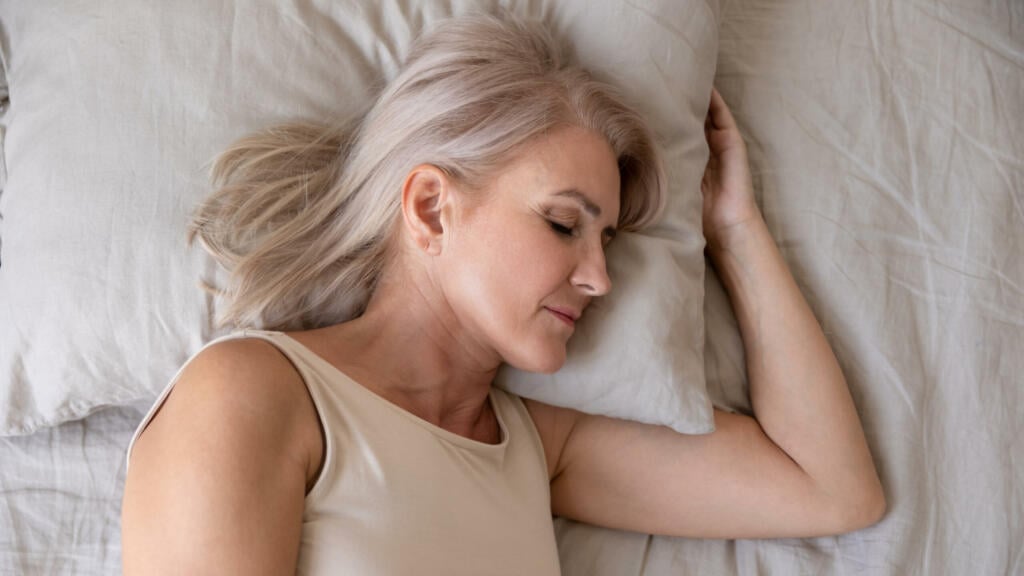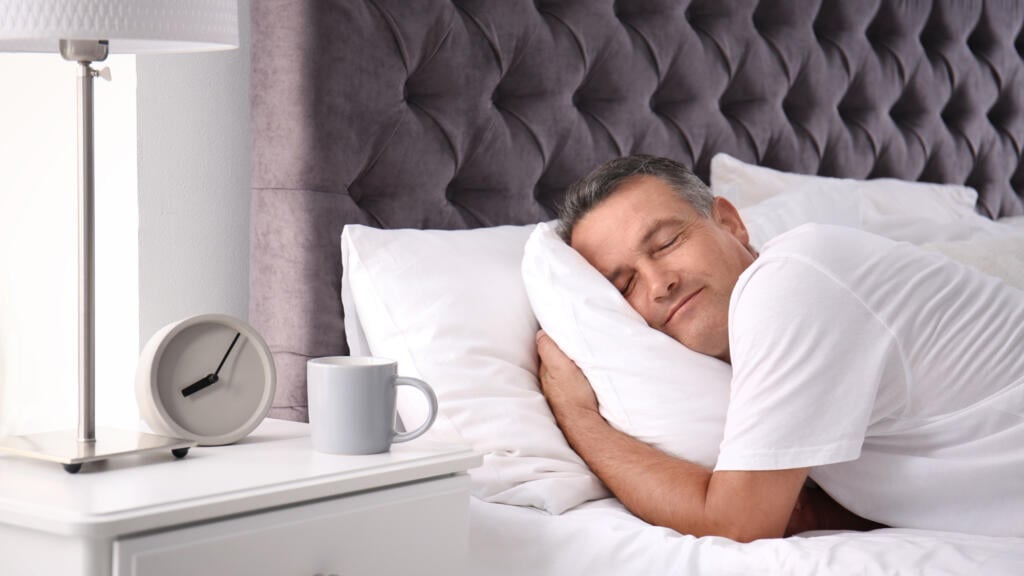
10 sleep truths from the experts
Rebecca Frew
Even one night of poor sleep can negatively affect your mental health. Our experts explain why – and what you can do to improve matters.
A good or poor night’s sleep can undoubtedly affect how you function and feel the next day.
Many factors can disrupt your ability to rest well, including stress, feeling unwell, noise disturbances (such as a partner snoring or loud external sounds) and temperature (feeling either too hot or cold). But what many of us aren’t so familiar with is the close link between sleep and mental health.
However, many studies have established a strong link between the two. Experiencing sleep disruptions such as insomnia has also been proven to worsen existing mental health problems.
It’s clear then that sleep is incredibly important for mental wellbeing. We spoke with two sleep and mental health experts to learn more about how they go hand in hand – and what you can do to get a better night’s rest.
A good or poor night’s sleep can undoubtedly affect how you function and feel the next day.
Many factors can disrupt your ability to rest well, including stress, feeling unwell, noise disturbances (such as a partner snoring or loud external sounds) and temperature (feeling either too hot or cold). But what many of us aren’t so familiar with is the close link between sleep and mental health.
However, many studies have established a strong link between the two. Experiencing sleep disruptions such as insomnia has also been proven to worsen existing mental health problems.
It’s clear then that sleep is incredibly important for mental wellbeing. We spoke with two sleep and mental health experts to learn more about how they go hand in hand – and what you can do to get a better night’s rest.
 Credit: Shutterstock/New Africa
Credit: Shutterstock/New Africa“Sleep is a key pillar in maintaining good mental health,” says Lisa Gunn, mental health prevention lead at Nuffield Health.
“Sleep is essential for maintaining good emotional and physical wellbeing due to it being so restorative. It helps us to function well in the every day, it benefits our mental processes such as memory and learning, and it also enhances our ability to cope with daily life stressors.”
Another expert describes sleep as a “basic human need” that is fundamental to living well.
“It has been scientifically proven that how well we sleep affects how we feel about our lives – whether that’s in terms of our mood or our relationships,” says Lisa Artis, deputy CEO of The Sleep Charity.
“Quality sleep helps to regulate our emotions and without that, our mental health is directly affected. When you are sleep deprived, your resilience and mood are lowered, and you also experience decreased energy levels. Sleep is vitally important for good physical, mental and emotional health.”
 Credit: Shutterstock/Kotoimages
Credit: Shutterstock/KotoimagesWe all have occasional nights of poor sleep, often due to temporary lifestyle factors such as worrying about the day ahead, feeling ill or dealing with a long-term health condition.
The result can be feeling a little sluggish and not quite firing on all cylinders the next day. Yet even one night of disruption or sleeplessness can have a knock-on effect on your mental health.
“Just one bad night’s sleep can affect our mood, concentration and alertness,” explains Artis, “while long-term sleep deprivation has far more severe consequences. It’s been linked to several serious health problems such as heart disease, diabetes and stroke.
“There is also a circle of cause and effect with mental health conditions such as depression and sleep, as they can spur each other on,” she adds. “That’s why it’s important to break that insomnia cycle before there are serious physical and mental health consequences.”
 Credit: Shutterstock/fizkes
Credit: Shutterstock/fizkesWhen it comes to avoiding sleep issues to protect your mental health, prevention is key, according to both experts.
Artis and Gunn recommend introducing these five small but effective steps to create healthy habits that’ll help you sleep better.
“Try to wake up at a similar time and avoid lengthy lie-ins, as this will help to strengthen your body clock,” Artis advises. “Whenever possible, try and expose yourself to natural daylight in the morning, as this will help to suppress melatonin (the sleep hormone) and boost your alertness.”
Review your daily routine to see what could be affecting your sleep. “For instance, if you are sensitive to caffeine, try to avoid it eight hours before bed,” says Artis. “This will help to stop caffeine interfering with your ability to get to sleep and stay asleep.”
“Exercise is great for both your sleep and your mental health, but try to be active earlier in the day rather than just before bedtime,” Artis advises.
“You will sleep a lot better if your bedroom is cool, quiet, dark, clutter-free and you have a comfortable bed to get into,” according to Artis.
Once in bed, avoid watching TV or scrolling through your phone, as these activities won’t help with winding down.
Think bath, book, and bed, Gunn advises. “The bath doesn’t have to be an actual bath,” she explains. “It can be anything that helps your body relax.”
She adds: “The book can be any activity that starts to unwind your mind. Lastly, keep sleep as the main association you have with your bed.”

Written by Julie Penfold she/her
Published:
Julie Penfold has been a specialist health and wellbeing journalist for more than 15 years and has been a finalist in three prestigious health and medical journalism awards during that time. She has written for a wide variety of health, medical, wellbeing and fitness magazines and websites. These have included Running, TechRadar, Outdoor Fitness, Be Healthy, Top Sante, Doctors.net.uk and The Guardian’s Social Care network.

Rebecca Frew

Joy Archer

Gavin Newsham

Rebecca Frew